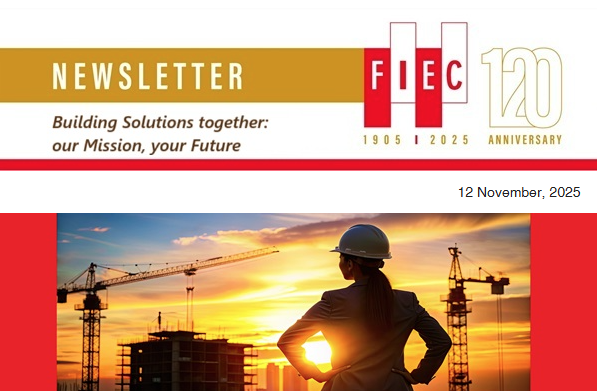
Construction Industry Statement on the forthcoming Industrial Accelerator Act
On 4 November, FIEC together with Construction Products Europe, EBC, and SBS published a joint statement to express concerns about inconsistent and potentially biased labelling initiatives aimed at creating green lead markets under the Industrial Accelerator Act (IAA).
The statement was sent to European Commission President, Ursula von der Leyen, and her College of Commissioners just a few days before the German government held a steel summit in Berlin, where it was decided to push for a “green” steel labelling system on the EU level that risks putting steel manufacturers that the construction industry is traditionally sourcing from and which already is circular and low-carbon at a disadvantage. This could lead to exacerbating prices for construction materials.
The four signatories of the joint statement represent the main stakeholders within the construction value chain. The European Commission is now called to ensure that the 2024 Construction Products Regulation (CPR) remains the EU legal framework reference, or alternatively, that a sectoral exception for construction be established in the forthcoming IAA.
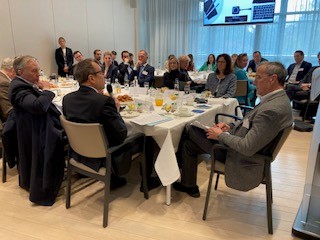
FIEC presents construction industry views on subcontracting at EP
On 5 November, FIEC Director General, Domenico Campogrande, intervened in a European Parliament’s breakfast hosted by MEP Henrik Dahl (EPP-DK) in the framework of the initiative report on subcontracting currently under discussion.
At this occasion, the cross-sectoral federation of Swedish enterprises (SN) presented a study assessing the various negative impacts of limiting subcontracting to only 2 tiers in the construction industry. In particular, such measure would impact the competitiveness of the many specialised SMEs in the sector.
Campogrande insisted that if the objective is to fight against illegal practices, that should be done through better enforcement of the existing rules and with the use of targetted instruments. Simply limiting legally the number of subcontracting tiers would not solve the problem in itself.
He also underlined that in order to adequately taking into account national and sectoral specificities, any decision to legally limit subcontracting must be taken at the natioanl level, in close cooperation with the concerned social partners. Trying to do this with a one-size-fits-all solution from the EU level would be a wrong and counterproductive approach.
| Read more |
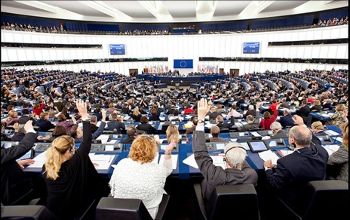
FIEC calls upon MEPs to support a pragmatic compromise on the sustainability reporting omnibus
On 13 November, the Members of the European Parliament will vote on their negotiation mandate for the sustainability reporting omnibus in plenary.
FIEC welcomes the ongoing efforts to introduce effective simplification measures and to reach a pragmatic compromise. However, recent developments in the legislative process raise serious concerns about potential delays. If the European Parliament fails to agree on a negotiating position, there is a real risk that the omnibus proposal could stall entirely. Such an outcome would undermine the efforts already invested by policymakers to simplify the Corporate Sustainability Due Diligence Directive (CSRD) and Corporate Sustainability Due Diligence Directive (CSDDD) frameworks.
FIEC therefore asked MEPs (ahead of the vote) to support a pragmatic compromise among centrist groups in plenary. A clear and practical reporting framework is essential to help the construction sector deliver on sustainability goals while fostering growth and employment.
| Read more |

Fair Labour Mobility Package: FIEC participates in European Commission’s hearing
On 6 November, FIEC participated in the Social Partners hearing on the Fair Labour Mobility Package. This hearing was organised by DG Employment of the European Commission to gather inputs from employers and trade union representatives on the upcoming Fair Labour Mobility Package (announced for Q3 2026). The hearing focused on digitalisation and the proposal for a European Social Security Pass and on the revision of the European Labour Authority (ELA) mandate.
FIEC shared its view on this package. FIEC supports the development of more digital tools and solutions to simplify procedures for companies. There is a need for more interoperability among the existing tools, such as social ID cards, used in several EU countries. On the topics of third-country nationals and subcontracting, FIEC does not reckon that new regulations at EU level are needed, but calls for more enforcement and control on the existing legal framework.
Last September, FIEC already participated on the implementation dialogue on fair labour mobility organised by the Executive Vice-President of the European Commission, Roxana Mînzatu.
| Read more |
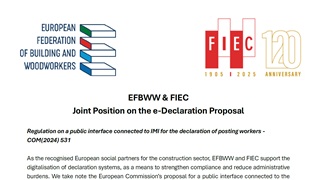
FIEC and EFBWW support a strong and flexible e-Declaration for the posting of workers
On 6 November, the European social partners for construction, FIEC and EFBWW (European Federation of Wood Workers), published a joint position in support of a strong and flexible e-declaration for the posting of workers, that improves enforcement, upholds fair competition and respects Member States autonomy.
As the EU institutions have entered into trilogue negotiations on the European Commission’s proposal for a public interface connected to the Internal Market Information system for the declaration of posting of workers (COM(2024)531), FIEC and EFBWW jointly call for:
- A voluntary, user-friendly digital interface
- A standard form which provides flexibility for Member States to add information requirements
- The full respect of national systems like sectoral social ID cards
- The involvement of social partners in defining information needs.
| Read more |
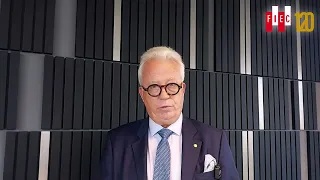
#FIEC120: A message by Kjetil Tonning
On the occasion of FIEC 120th anniversary, running throughout 2025, our Federation’s Honorary President (Norway), and Chairman of the joint FIEC-EIC Task Force “Ukraine”, shared his video-message to congratulate on this remarkable milestone and to wish FIEC best success on the upcoming celebration for this very special year.
We thank Mr Tonning for his valuable contribution and continued commitment to FIEC’s work, and for his good wishes.
| WATCH VIDEO |



